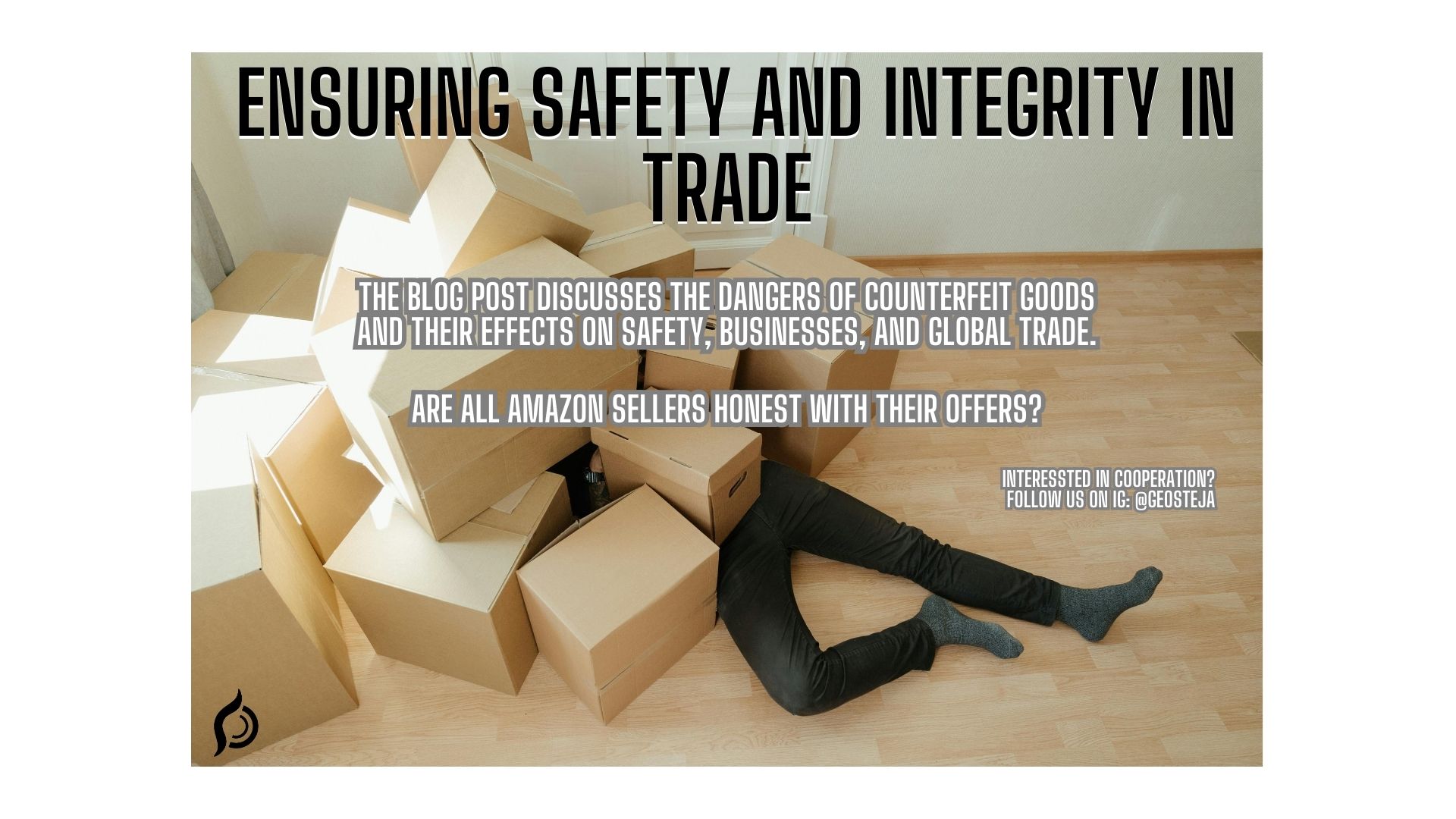The Dangerous Reality of Unethical Practices on Online Marketplaces: A Call for Change

In recent years, online marketplaces such as Amazon, Etsy, and other platforms have become go-to sources for consumers searching for products, ranging from everyday essentials to niche items. However, a disturbing trend has emerged that threatens consumer safety and undermines the trust that these platforms once built. Sellers flooding these platforms with counterfeit or subpar products—especially those in the supplement and health sectors—are putting people’s health at risk.
One alarming example is a recent revelation regarding a popular product sold on Amazon. The creator of the product, the sole manufacturer and owner of trademarks related to it – @milliondollarbrandclub, uncovered a disturbing issue: a flood of counterfeit versions of their product were being sold by other sellers, some even for a fraction of the original price. This is not just a financial problem—it’s a safety issue, as some of these counterfeit products could be harmful or even deadly.
The Rise of Counterfeit Products: A Growing Concern
The situation highlighted in the video @milliondollarbrandclub posted is far from isolated. What started as a single instance of counterfeit supplements quickly spiraled into a broader issue, where multiple sellers began offering fake or low-quality products under the guise of the original brand. The creator attempted to report this issue to Amazon, posted on X, presenting evidence of their trademark and ownership of the product, but their efforts were met with indifference. More sellers continued to pop up, selling dangerous imitations, despite Amazon’s responsibility to protect consumers from such threats.
The problem doesn’t stop at Amazon. Other platforms like Etsy, known for promoting handmade and unique goods, have also become breeding grounds for counterfeit and unethical products. While Etsy’s mission is to support independent creators, it has inadvertently created an environment where fraudulent sellers can thrive by offering mass-produced knockoffs labeled as “handmade.” This misrepresentation not only undermines the legitimacy of genuine creators but also poses a risk to consumers who trust these platforms to offer safe and ethical products.
How Platforms Are Failing Consumers
Why are platforms like Amazon and Etsy allowing such unethical behavior to flourish? The answer lies in their business models. Both Amazon and Etsy generate substantial revenue from their vast marketplace networks, and policing every seller and product becomes a daunting task. As these platforms grow, their focus on profit often takes precedence over consumer protection. With the sheer volume of transactions and the number of new sellers constantly entering the marketplace, these platforms struggle to maintain oversight.
In the case of Amazon, the failure to act on counterfeit products despite reports from legitimate creators shows a pattern of negligence. The company’s automated systems for handling complaints are overwhelmed, leading to slow responses or no action at all. On Etsy, the ease with which mass-produced items can be listed as handmade has made it difficult for buyers to discern the authenticity of a product. These issues raise questions about the responsibility these platforms have to their consumers. In future articles, we will also delve into the topic of child labor, particularly how platforms like Etsy may inadvertently be contributing to this issue.
As we explore the darker side of online marketplaces, we will examine how the demand for cheap, mass-produced goods can sometimes lead to the exploitation of vulnerable workers, including children, in unethical production practices. Stay tuned for an in-depth look at this critical issue.
The Real Threat to Consumers
At its core, the issue is not just about losing money on a fake product—it’s about consumer safety. The supplements in question were found to be sold in what appeared to be the original product’s packaging, but with ingredients that were either different or harmful. There’s no way of knowing whether these counterfeit pills were made under safe conditions, or whether they contained toxic substances. The threat is very real, as consumers unknowingly put their health at risk when purchasing from sellers who care more about profit than product safety.
Consumers are often unaware that the seemingly legitimate products they’re purchasing online could be counterfeit, and many turn to online reviews and ratings for assurance. However, these reviews can be manipulated, and the product listings themselves often don’t provide enough information to help buyers make informed decisions. As a result, unethical sellers continue to exploit this system to profit at the expense of both the original creators and the consumers.
A Call for Change
It’s time for a change in how online marketplaces regulate their sellers and products. While some efforts are being made to combat counterfeit goods, it’s clear that more needs to be done. Platforms like Amazon, Etsy, and others must be held accountable for the safety of the products they allow to be sold on their sites. This includes strengthening their policies, improving monitoring systems, and taking swift action when counterfeit goods are reported.
As consumers, we must also be vigilant. By supporting ethical sellers and calling out fraudulent products, we can create a marketplace where quality and safety are prioritized. It’s essential to buy from trusted sources, check product reviews carefully, and, when possible, verify the authenticity of the items before making a purchase.
In conclusion, the rise of counterfeit products on platforms like Amazon and Etsy presents a significant challenge to consumer safety and trust. It’s crucial that both consumers and platforms work together to address these issues, ensuring that the products we buy online are safe, ethical, and legitimate. Until then, we must remain cautious and informed in our purchasing decisions.
0 Comments